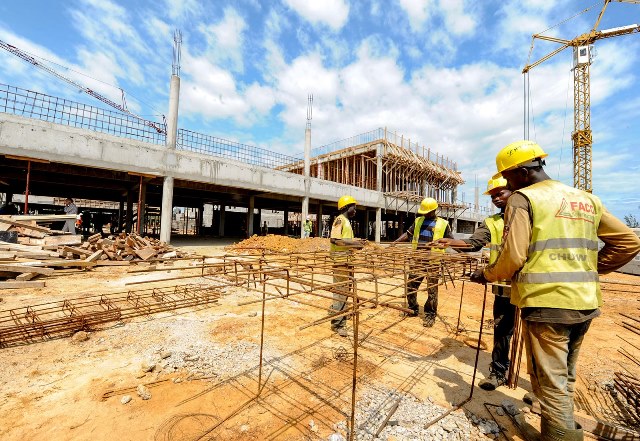The coronavirus has been slow to take root in Sub-Saharan Africa (SSA), but the number of cases is now beginning to grow and the construction industry is facing disruption stemming from the China shutdown.
From imposing travel bans to barring mass gatherings and shutting down schools, governments across Africa are increasingly implementing comprehensive measures in a bid to control the spread of the new coronavirus.
The emergency moves come amid a worrying rise in the number of infections registered in recent days across the continent after weeks of relatively few reported cases. As of 19 March, 33 African countries combined had reported more than 600 cases and 17 deaths due to the virus, 150 cases alone were reported in South Africa.
Amid the worsening situation with regards to the coronavirus outbreak, GlobalData has cut its forecast for SSA’s construction output growth to 5.4% in 2020, from 6.0% previously. Although the direct impact from the coronavirus has been limited to date, many countries in Africa are exposed to the knock on effects from the construction shutdowns in China.
In recent years, China has emerged not only as SSA’s largest trading partner but as a large and fast-growing source of aid and the largest source of construction financing; these contributions have supported many of Africa’s most ambitious infrastructure developments in recent years.
As part of their increasing activity in overseas markets, Chinese companies have significantly boosted their engagement in Africa, covering a wide range of sectors. Africa is part of China’s ‘One Belt, One Road’ (BRI) initiative and with significant focus on coal and large hydropower projects.
The coronavirus outbreak presents a downside risk for short-term growth in the region, particularly in Ghana, Angola, South Africa, and Nigeria, which are reliant on China’s demand for their commodities exports.
With mass production shutdowns and supply chain disruptions due to port closures in China, the effects are already being felt, while Africa’s access to industrial components and manufactured goods from the region has been hindered.
Construction companies have also suffered a lack of access to skilled personnel from affected regions, who have been unable to travel to project locations due to travel bans, quarantines and self-isolation, and this will delay the completion of projects.
There is also a risk of a short-term dip in BRI related activity as the Chinese government evaluates its investment in the region and may opt to trim its investments in less critical markets.
This adds more uncertainty to the region marred with widespread geopolitical and economic instability.
On a more optimistic side, the African Continental Free Trade Area (AfCFTA) will effectively kick in July 2020, which should provide a boost to deal activity across the region.
Also Read
China to fund construction of huge medical research centre in Kenya

